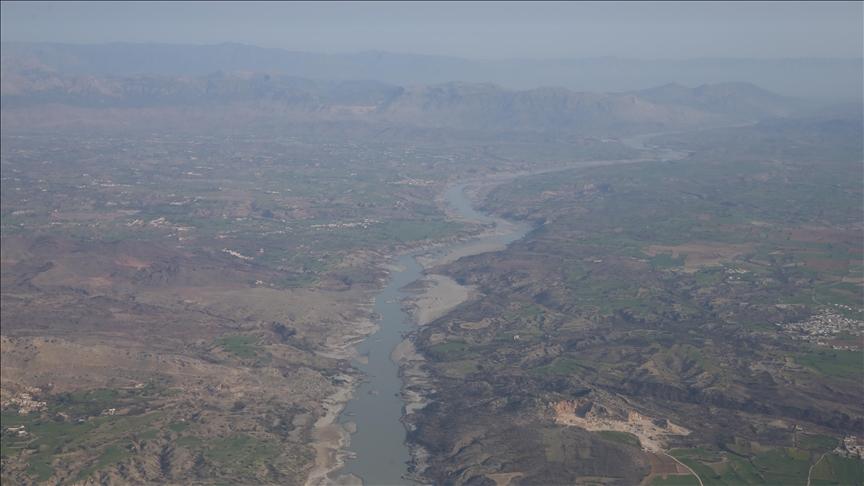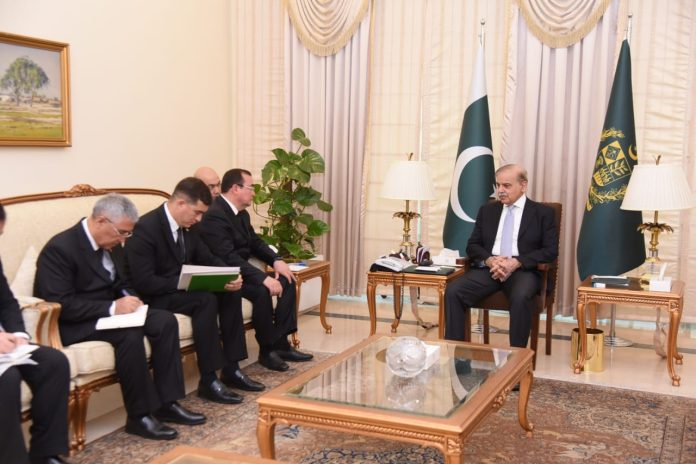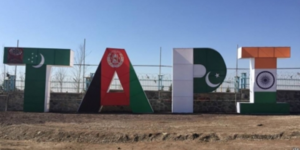Source: Dawn

• Both sides sort out technical issues on insurance, transportation, payment mechanism
• Sign three accords for cooperation in customs, aviation
• Moscow says Islamabad can pay for oil in currencies of any ‘friendly country’
ISLAMABAD: Pakistan and Russia decided on Friday to address all technical issues — insurance, transportation and payment mechanism — to sign an agreement by late March this year for the supply of Russian oil and other petroleum products at discounted rates.
“On crude products and future supply of oil products, we have already decided to draft an agreement and to sort out all issues that we have with regard to transportation, insurance, payments and volumes and we have already established the timelines for this agreement” for late March this year, said Russia’s Energy Minister Nikolay Shulginov at a joint news conference with Economic Affairs Minister Ayaz Sadiq.
The news conference came after the conclusion of the three-day eighth session of the Pakistan-Russia Inter-Governmental Commission (IGC) on Trade, Economic, Scientific and Technical Cooperation.
The two sides, nevertheless, signed three agreements for cooperation in the customs and aviation sectors.
This was, however, short of expectations Minister of State for Petroleum Dr Musadik Malik had pitched early last month after his return from Moscow.
At a Dec 5 presser, Dr Malik said the detailed terms and conditions of the discounted oil commodities would be settled during the upcoming visit of the Russian energy minister to Islamabad by mid-January and before that, the two sides would crystallise proposals to a stage that an executive summary or an agreement could be signed and supplies start flowing.
According to a joint statement read out at Friday’s conference, the two sides reached an in-principle agreement on the supply of Russian crude oil and oil products to Pakistan, with technical details to be finalised in March at the latest.
“After consensus on the technical specifications achieved, the oil and gas trade transaction will be structured in a way it has a mutual economic benefit for both countries,” it said, adding that the process would be completed within March.
Friendly currencies
Responding to a question, the Russian minister said liquefied natural gas (LNG) volumes were committed to long-term LNG volume contracts and its spot market was very small, but two leading companies, including Gazprom, would have additional capacities by late 2023.
“We have decided that it would be a good idea for Pakistan to approach Gazprom and Novatek, two largest LNG-producing companies, in late 2023 to discuss the conditions when they have spare capacities,” he said.
Mr Shulginov said the transactions between the two countries could be done through the currencies of any friendly country.
On the delay in the Russia-supported Pakistan Stream Gas Pipeline (PSGP) from Karachi to Lahore, Minister Sadiq said the energy minister was working on a holistic plan for the energy sector involving the supply of gas to pipelines and related matters.
Oil supply after March
On the sidelines of the news conference, Musadik Malik said all details had been settled, including transportation, structure and currency, etc., that would be inappropriate to be disclosed before an agreement is concluded by March.
He said the oil supplies from Russia would start after March, but LNG imports from Moscow would be looked into by the end of the current year.
Responding to a question, he said two refineries — Pak-Arab Refinery Company Ltd (Parco) and Pakistan Refinery Ltd — had expressed their capability to use recipes to operate 32 to 35 per cent of their refining capacity on Russian crude. Besides, private refinery Cnergyico could process up to 80-90pc of its capacity on Russian crude.
He said currencies from all friendly countries would be welcome for transactions with Russia. He added that all these specifics relating to transaction structure, including currency, shipping, pricing, insurance and commercial terms, had been discussed and settled but could not be made public before March. “The supplies of oil and oil products would begin soon after March,” he said.
The two sides also discussed innovative ways of doing business, including through barter, and agreed to explore the option further. In the context of the desire of both parties to promote regional integration and Eurasian connectivity, the two sides agreed to share information towards developing and improving rail and road infrastructure.
On the last day of the IGC meeting on Friday, the two sides signed an agreement on cooperation and mutual assistance in customs-related matters; a protocol on the exchange of documents and data on the customs value of goods transported; and a working agreement on the airworthiness of aeronautical products.
Published in Dawn, January 21st, 2023




